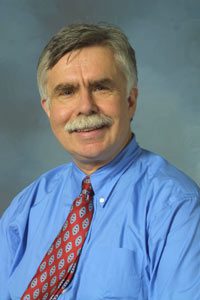J. Gordon Hylton: In Memoriam 1952-2018
 On May second, the Marquette community lost one of its most interesting, wonderfully eccentric, and beloved members, Professor Gordon Hylton, who died of complications from cancer. Academics by and large are an enthusiastic group of people with extraordinary jobs that give them a privileged opportunity to study and share their passions with colleagues and students. No one more thoroughly enjoyed and reveled in being part of that world than Gordon Hylton. He was a devoted teacher, a relentless, careful, and thorough scholar, and a cherished colleague.
On May second, the Marquette community lost one of its most interesting, wonderfully eccentric, and beloved members, Professor Gordon Hylton, who died of complications from cancer. Academics by and large are an enthusiastic group of people with extraordinary jobs that give them a privileged opportunity to study and share their passions with colleagues and students. No one more thoroughly enjoyed and reveled in being part of that world than Gordon Hylton. He was a devoted teacher, a relentless, careful, and thorough scholar, and a cherished colleague.
I personally found Gordon to be one of the most interesting people of my acquaintance largely because he had so many interests, found so many things fascinating, and, aided by a legendary memory, pursued them with passion and rigor and a remarkable urge to synthesize, to explain everything. And he was generous. He enjoyed nothing so much as chatting with his students and his colleagues about baseball, country music, the odd personalities who sat on the Supreme Court, the reasonableness of property doctrines, the early history of Christianity, and always with great enthusiasm and courtesy, as if knowledge and insight were both important and the most fun.
Professor Hylton was a native of Pearisburg, a small town (population, 2,699 in 2016) in Giles County in the SW corner of Virginia near the border with West Virginia. He began his college and university career at Oberlin College in Ohio, where, he often explained, he enrolled because they let him play baseball. In the course of his four years at Oberlin, the student radio station also let him host a country music program in the late night, early early morning hours. Oberlin nurtured a pronounced competitive streak. His roommates recall Gordon organizing them to enter a team in every intramural sport including inner tube water polo despite the fact that Gordon did not know how to swim, something his teammates discovered only well into the water polo season.

